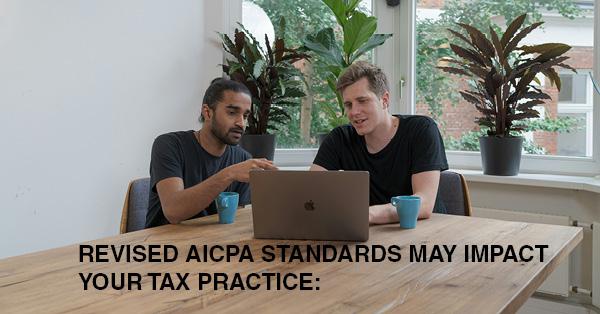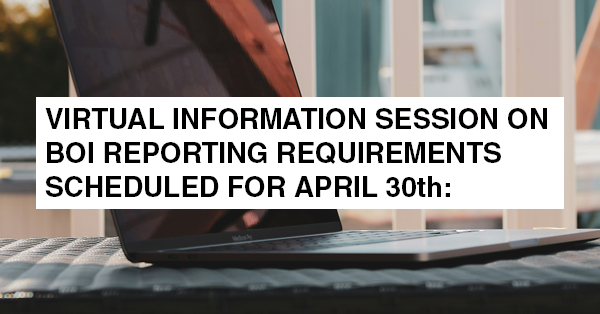REVISED AICPA STANDARDS MAY IMPACT YOUR TAX PRACTICE:

Changes to the AICPA Statements on Standards for Tax Services (SSTS) are potentially impacting CPAs. While these changes do not govern EAs and other tax preparers, CPAs who offer even a small amount of tax services may need to comply.
The most recent changes to the AICPA SSTS went into effect on January 1st. Importantly, the definition of “tax service” was expanded with these changes. Prior to this year, a tax service was primarily considered preparation of income tax returns but now includes giving tax advice and/or having knowledge of a client’s tax position, even informally. The language makes tax service extremely broad and could even extend to firms who prepare zero tax returns but have knowledge of client tax positions from attestation services.
Because of the expanded services definition, more CPAs are subject to the standards than before and could be held liable for upholding them without knowing.
Other changes include strong regulations around protecting client data. CPAs are held to strict standards when it comes to protecting confidential client information, including encrypting any electronic information and complying with all relevant privacy laws. Because some firms may be unaware of their requirements to comply with SSTS under expanded definitions, they may be failing to look at their required compliance with protecting information. It’s recommended that you seek professional advice from both a lawyer and an IT professional to ensure that all your systems and procedures meet the necessary standards.
For CPAs acting on behalf of taxpayers before the IRS and other tax authorities, the SSTS beefed up guidelines around competence, conflicts of interest, prompt case handling, and more. While based on existing Circular 230 rules, the goal is to consolidate key aspects into the SSTS for easier reference.




